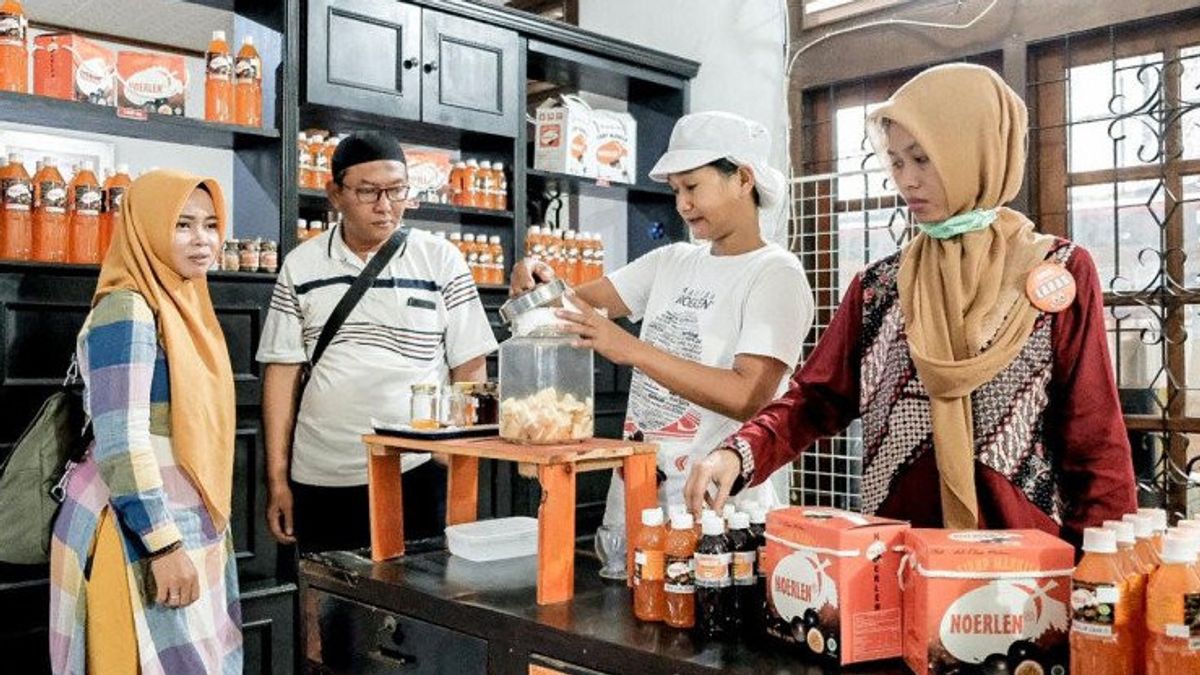JAKARTA - Member of Commission VI DPR RI from the Prosperous Justice Party (PKS) Nevi Zuairina, supports the Micro Business Productive Assistance (BPUM) program to continue and emphasizes the importance of a comprehensive evaluation so that its implementation can be achieved as expected.
"Basically I really support this BPUM to continue. But what has happened is of course monitoring the evaluation from the Ministry of Cooperatives and UMKM," said Nevi Zuairina as quoted by Antara, Tuesday, April 6.
For that, he said, in the next period it must be ensured that the distribution of BPUM 2021 can be precise and accurate to the people who are entitled to receive it.
He places great emphasis on evaluating the BPUM program for 1 million small and micro business actors worth IDR 2.4 trillion so that there will be significant improvements for the efficiency and effectiveness of channeling state funds in helping the community.
In 2021, he continued, there would be an additional budget of Rp. 11.76 trillion with a direct assistance amount of Rp1.2 million, and the BPUM is targeted for 9.8 million recipients of micro business actors who have not received in 2020.
"I support that prospective BPUM recipients in 2021 are proposed by offices or agencies in charge of cooperatives, district / city micro, small and medium enterprises. Meanwhile, the distribution is through BUMN Banks, BUMD Banks and Post Offices that are determined by the Budget User Authority. and supervision so that this program runs smoothly, "said Nevi.
He also reminded the need for MSME data integration in order to facilitate the distribution of aid and empowerment in the future.
The MSME Database, he added, is one of the mandates in the Job Creation Law so that the integration of the required data can make the execution of various government programs related to MSMEs to be more effective, efficient, and right on target.
Previously, Minister of Cooperatives and SMEs Teten Masduki emphasized that the National Economic Recovery (PEN) program, especially financing for micro, small and medium enterprise cooperatives (KUMKM) this year will still be continued by the government.
Minister of Cooperatives and SMEs Teten Masduki when being the keynote speaker at the Graduation Banking Editors Masterclass with the theme "The Role of Banking in the Adaptation of MSMEs in the Pandemic Period" which was held virtually, Wednesday 17 March, said the PEN KUMKM program consists of two clusters.
"First, for micro businesses that are 'unbankable', the Banpres for Productive Micro Enterprises (BPUM). God willing, it will be rolled out soon by the President," said MenkopUKM Teten Masduki.
Second, PEN for business groups that are "bankable" and have obtained people's business credit (KUR) in the form of a KUR interest subsidy facility and cooperative working capital financing through the Revolving Fund Management Institute for Micro, Small and Medium Enterprises.
"The government continues to finalize financing alternatives for UMKM and cooperatives that are cheap, easy, and fast so that MSMEs can quickly advance to class," he said.
He admitted that the pandemic had a huge impact on MSMEs. According to Data Ready with UKM, the impact of the pandemic on MSMEs is 22.9 percent of marketing difficulties, 20.01 percent hampered distribution, 19.39 percent of capital difficulties, and 18.87 percent of raw materials.
"As much as 98 percent of MSMEs experienced a decline in sales and 50.5 percent of MSMEs reduced their employees," said Teten citing 2020 SMRC data.
The English, Chinese, Japanese, Arabic, and French versions are automatically generated by the AI. So there may still be inaccuracies in translating, please always see Indonesian as our main language. (system supported by DigitalSiber.id)













